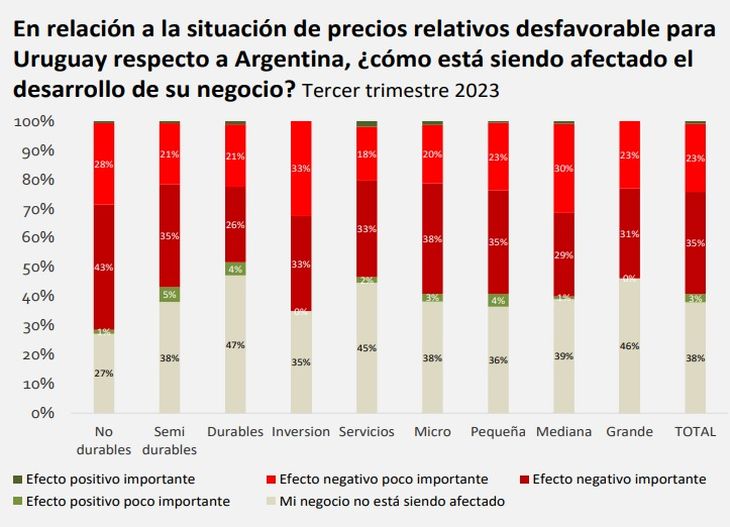One in three firms described the negative effect of the price gap between the neighboring country and Uruguay as “important.”
35% of companies recognized that exchange difference with Argentina had a “significant negative impact” on the development of its business during the third quarter of the year, according to a report from the Chamber of Commerce and Services of Uruguay (Ccsuy).
The content you want to access is exclusive to subscribers.
The survey, which evaluates the activity of the sector during the third quarter, had just over a third alerting about this situation and 23% of the firms stating that the price gap with the neighboring country, as a result of the rise in Dolar blue, It had a “little important” effect, making a total of 58% affected companies.


When investigating by items, the companies that sell non-durable goods were the ones that were most impacted, with 71%, while those dedicated to durable were the least affected, although with a high percentage of 47%.
With respect to the size of the companies, those that perceive the least impact were the big, with 54%, while the most affected were the micro, with a 38% “significant negative impact”, followed by the medians, with a record of 35%.
Graphic ccsuy.jpg

The reasons behind the negative impact of the exchange rate difference
The businessmen consulted in the report of the Ccsuy indicated that 63% of the Uruguayan companies They considered the main channel of impact due to the exchange difference to be the “Lower sales levels due to the shift in consumption and lower domestic tourism.”
In this regard, they pointed out that people stop buying locally and “the same product/service is consumed on the Argentine side”, producing a diversion of consumption that will also impact revenue, according to the forecasts of the government headed by the president. Luis Lacalle Pou.
At the same time, the study highlighted that among those firms that sell non-durable and larger goods, they are also affected by the “Increase in unfair competition of merchandise that enters through smuggling”, a situation that is usually claimed by coastal businessmen.
Source: Ambito




